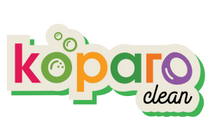
Are Your Cleaning Products Exposing Your Child To The Risk Of Asthma?
HOUSEHOLD CLEANERS LEADING TO SERIOUS HEALTH ISSUES
Maintaining a clean household is an important concern for anyone. Even more so for new parents or those with young children. Add the current Coronavirus pandemic into the mix, and cleaning is surely the number one priority in most households at the moment. With the availability of a wide array of cleaners, soaps, disinfectants, it is an easy to do task.
What we don’t know while loading our delivery baskets with cleaning products is that many of them might end up doing more damage than cleaning. Common cleaning products like dishwashing soap, dishwasher detergent, multi-surface cleaners, glass cleaners, and laundry soap often have chemical components that are serious health risks to people coming in contact with them.
Childhood asthma is one of the major side effects of chemical cleaners. Chemical cleaning agents can increase the risk of lung conditions like wheezing or asthma.
Asthma in Children
Infants are most vulnerable because their immune and respiratory systems haven’t fully developed at that time. They tend to crawl and touch surfaces, put things in their mouths. Their tiny size also means that even a small amount of exposure can cause big damage that lasts through their childhood.

According to a study, babies who have an early exposure to household cleaning products are associated with the onset of childhood asthma and recurring wheeze by three years of age.
This kind of exposure can easily be avoided by switching to natural, non-toxic cleaners.
What to Avoid
Instead of going by brands and marketing strategies, it is best to go right down to the basics. If the ingredients of a product list the following, put them back on the shelf:
- Formaldehyde and 1,4-dioxane, which are both carcinogens
- Benzalkoinum chloride, found in antibacterial spray cleaners and fabric softeners, is known to cause asthma. It is an active ingredient in all variants of Lizol. Yes, you heard us, Lizol uses Benzalkonium chloride as an active ingredient.
- Sodium borate (borax/ boric acid), a cleaning agent that can be a hormone disruptor
Also skip products which contain cleaners with volatile organic compounds (VOCs), ammonia and bleach. Air fresheners that have unspecified fragrance mixtures and fabric softeners often contain asthma-causing substances are two offenders that can easily be avoided.
What to Adopt
There are many natural cleaners available which do not have the side effects of chemical cleaners. They do not leave toxic residue on surfaces, do not emit harmful gases and don’t cause breathing and skin problems.
It has been scientifically proven that natural cleaning products bring the same results as chemically produced ones. What they do not come with are the harmful side effects!
So, the only way to really make your home clean and safe is by shunning chemicals. And by doing so you are also saying goodbye to potential health risks like allergies and asthma.



